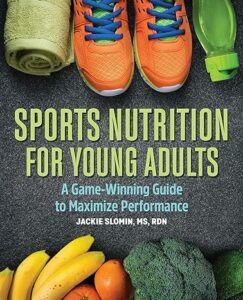The Importance of Balanced Meals for Youth Athletes

Soccer is not just a sport; it’s a passion, a lifestyle, and a commitment. For young athletes dedicated to mastering their craft on the field, proper nutrition is as crucial as their training regimen. A balanced diet provides the essential fuel to enhance performance, optimize recovery, and sustain long-term health. In this article, we delve into the significance of balanced meals for youth soccer athletes and explore the key components that fuel their success.
The Foundation of Performance
Fueling a youth soccer player’s body is akin to filling a high-performance vehicle with premium gasoline. Without the right nutrients, athletes may find themselves running on empty or unable to reach their full potential. Balanced meals serve as the foundation for optimal performance, offering a blend of carbohydrates, proteins, fats, vitamins, and minerals necessary for energy production, muscle repair, and overall well-being.
Carbohydrates: The Energy Source
Carbohydrates are the body’s primary fuel source, especially during high-intensity activities like soccer. Complex carbohydrates found in whole grains, fruits, and vegetables provide sustained energy levels, enabling athletes to maintain endurance throughout a game or practice session. Including carbohydrates in pre-game meals ensures that glycogen stores are adequately replenished, enhancing stamina and reducing the risk of fatigue.
Proteins: Building Blocks for Muscle Repair
Proteins play a crucial role in muscle repair and growth, making them essential for youth soccer athletes who engage in rigorous training and competition. Lean sources of protein such as poultry, fish, eggs, beans, and dairy products supply the amino acids necessary to repair muscle tissue damaged during exercise. Consuming protein-rich meals post-workout supports recovery, aids in muscle recovery, and promotes strength development, helping athletes perform at their best in subsequent sessions.
Fats: The Unsung Hero
While often misunderstood, healthy fats are vital for overall health and athletic performance. They provide a concentrated source of energy, support hormone production, and aid in the absorption of fat-soluble vitamins. Incorporating sources of unsaturated fats such as avocados, nuts, seeds, and olive oil into meals enhances satiety, promotes cardiovascular health, and contributes to optimal brain function, all of which are crucial for youth athletes striving for peak performance.
Vitamins and Minerals: The Missing Puzzle Pieces
Micronutrients such as vitamins and minerals are essential for numerous physiological processes, including energy metabolism, immune function, and bone health. Youth soccer athletes have increased nutrient needs due to their active lifestyles and rapid growth and development. Ensuring adequate intake of vitamins and minerals through a diverse diet rich in fruits, vegetables, whole grains, and lean proteins supports overall health, reduces the risk of injury, and enhances performance on the field.
Hydration: Another Unsung Hero
In addition to balanced meals, proper hydration is paramount for youth soccer athletes. Dehydration can impair cognitive function, decrease endurance, and increase the risk of heat-related illnesses. Encouraging athletes to drink water consistently throughout the day and consume fluids before, during, and after training or competition helps maintain optimal hydration levels, ensuring peak performance and reducing the likelihood of fatigue or injury.
Conclusion
Balanced meals are the cornerstone of success for youth soccer athletes, providing the essential nutrients needed to fuel performance, support recovery, and promote overall health and well-being. By prioritizing a diet rich in carbohydrates, proteins, fats, vitamins, and minerals, young athletes can optimize their potential on the field and lay the foundation for a lifetime of athletic achievement. With proper nutrition as their ally, the next generation of soccer stars can continue to inspire and excel, both on and off the field.
————————————————-
Soccer is not just a physical sport; it’s a game of strategy, intelligence, and quick decision-making. Elevating your soccer IQ can significantly enhance your performance on the field. Whether you’re a player, coach, or a passionate fan, check here some key strategies to boost your soccer intelligence: CLICK HERE.


